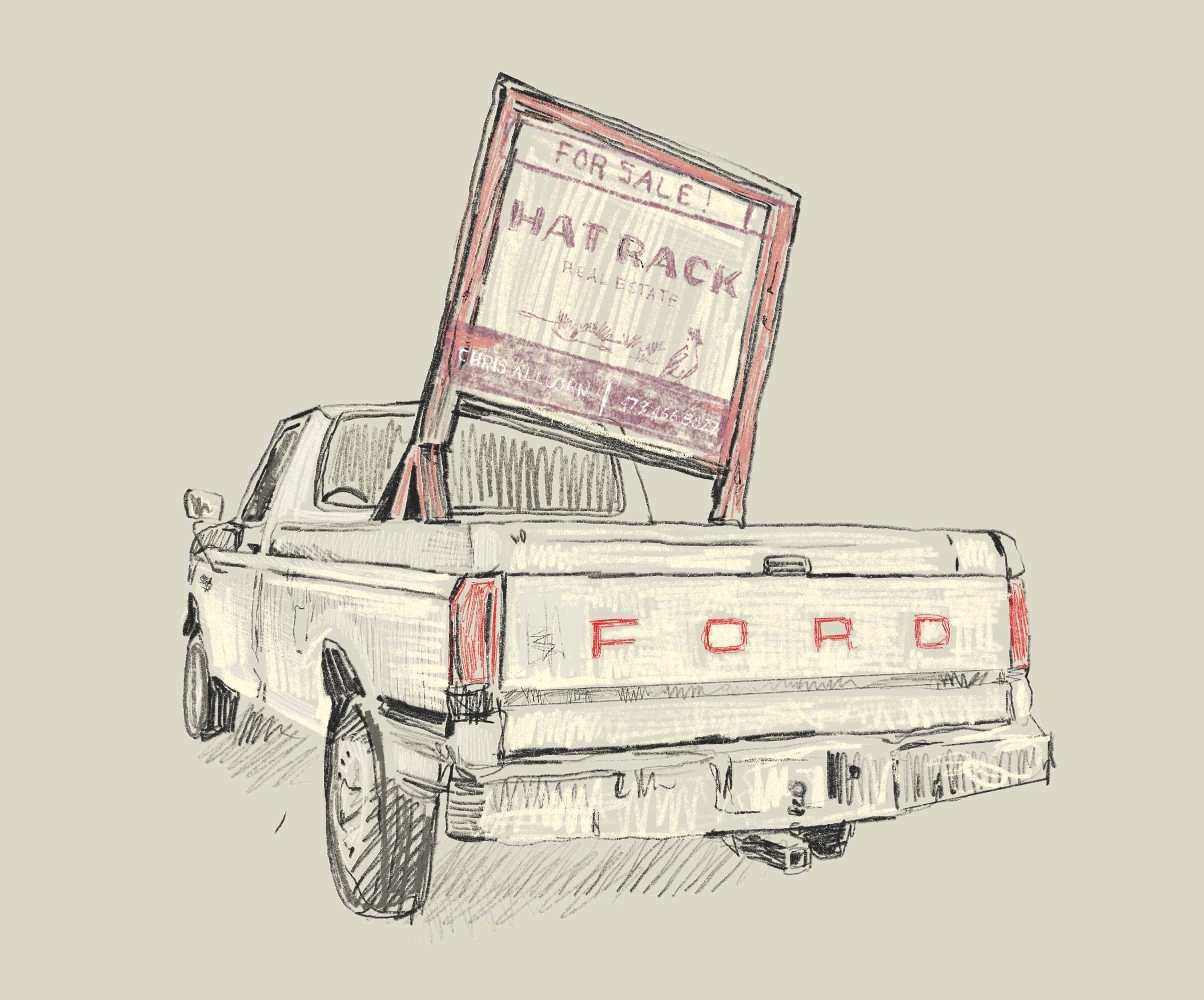Changing Your Own Oil: A Short Story About Agency, Signs, and Slowing Down for Small Miracles
“You have traveled too fast over false ground;
Now your soul has come to take you back.
Take refuge in your senses, open up
To all the small miracles you rushed through.
Become inclined to watch the way of rain
When it falls slow and free.
Imitate the habit of twilight,
Taking time to open the well of color
That fostered the brightness of day.
Draw alongside the silence of stone
Until its calmness can claim you.”
― John O’Donohue
So you might be wondering: What does changing your own oil have to do with a for sale sign in the front yard of a vacant space? Well, before we can answer that, let me start from the beginning.
Last week, we decided to build our own “For Sale” signs to place in front of the spaces we hope to help make into places. We built three of them. We built them with cedar wood, sweat, and love…(maybe a curse word or two).
If you’re familiar with the industry at all, you probably know that the task of making marketing accoutrement is usually outsourced to folks we haven’t met in faraway places. All it takes is an email and some credit card information.
Of course, there is a time and place for outsourcing and degrees of relationship—I picture a spectrum where Amazon is on one end and Etsy is on the other. Outsourcing can be convenient, quick, and efficient. It might even make for a more refined or “effective” product, displaying whatever colors the great psychological gods of marketing promise sell like bread before a storm.
Here is where the oil becomes crucial to our story. Let’s say you own a beautiful 40-year-old truck. You love her. You two have a trustworthy relationship, and she has carried you home time and time again. Perhaps most notably, for the purposes of this story, you change your own oil. It feels cheap not to—why? That’s the million-dollar question.
We believe there’s something special about not outsourcing the physical or spiritual care of the things we hold dear. At least, not where it matters. So too with for sale signs.
The world of placemaking and community development must (and I mean must) consciously caution itself against traveling too fast over false ground, as John O’Donohue poetically reminds us. People have this proclivity to want to chase what is convenient, what sells, what immediately gratifies.
But in order to build a better future for our neighbors and the people we love, we must reshape our thinking. We must “imitate the habit of twilight,” so to speak—taking time to appreciate the subtle shifts in light and color that bring forth the day. Taking time to bring intentionality and care into every aspect of a transaction.
What are we doing when we tell the public about a building? We are opening up the potential to change the landscape of a neighborhood; of the people in it, of their stories:
Maybe the building our sign sits in front of will turn into a coffee shop where two people meet and fall in love. Maybe a little girl will try her first bite of waffle there with her dad on a Saturday, and it will become a decades-long tradition. Maybe it will become a place where your aging mom will find her closest friends, her deepest belly laughs.
Spaces have the potential to hold a million small miracles—and we mustn’t rush through them. Not at any stage—from the for sale sign to the first memory made.
Everything has agency.
Every detail is personal.
We want to know the person who laid each brick. We want to draw alongside the silence of the stone, as O’Donohue puts it, and let it claim us.
So. when you see our for sale sign, we want you to feel its intentionality. And if that sounds like a crazy thing, you might be right. But at least you know how infinitely important we feel it is to be connected to what we do.

